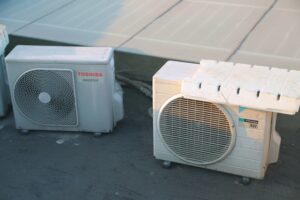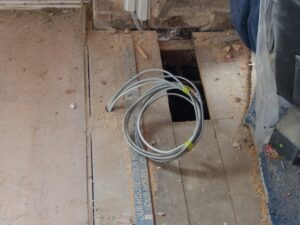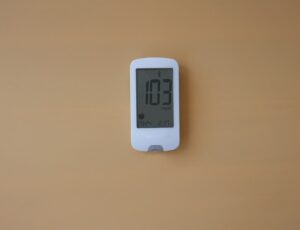If you’re wondering how long it takes for your water heater to heat up, you’re not alone. Many homeowners and business owners alike want to know how long they have to wait before they can enjoy hot water. The answer to this question depends on several factors, including the type of water heater you have, the size of the tank, and the temperature setting.
At Excel Mechanical, we understand that having hot water is essential for both residential and commercial properties. That’s why we offer top-notch HVAC and plumbing services to ensure that your water heater is working efficiently. Our team of professionals is knowledgeable and experienced in all aspects of water heater installation, repair, and maintenance. We work to provide the best possible system to meet your individual needs and budget, ensuring that you get exceptional quality and great value.
Contact us to see what we can do for you!
Types of Water Heaters
When it comes to choosing a water heater, there are three main types to consider: tankless, electric, and gas water heaters. Each type has its own advantages and disadvantages, and the right choice will depend on your individual needs and budget.
Tankless Water Heaters
Tankless water heaters, also known as on-demand water heaters, are becoming increasingly popular due to their energy efficiency and space-saving design. Unlike traditional water heaters, tankless models do not store hot water in a tank. Instead, they heat water on demand as it passes through the unit.
Tankless water heaters are available in both electric and gas models. While electric tankless water heaters are generally more efficient, gas models can provide higher flow rates and are better suited for larger households.
Electric Water Heaters
Electric water heaters are the most common type of water heater found in residential homes. They are relatively inexpensive and easy to install, but they are also less efficient than other types of water heaters. Electric water heaters work by heating water in a tank, which is then stored until it is needed.
If you have a smaller household and do not use a lot of hot water, an electric water heater may be the best option for you. However, if you have a larger household or use a lot of hot water, a gas water heater may be a better choice.
Gas Water Heaters
Gas water heaters are more expensive to install than electric water heaters, but they are also more efficient and can provide a higher flow rate. Gas water heaters work by heating water in a tank using a gas burner.
If you have access to natural gas and use a lot of hot water, a gas water heater may be the best option for you. However, if you do not have access to natural gas or do not use a lot of hot water, an electric water heater may be a better choice.
Factors Influencing Heating Time
When it comes to the heating time of your water heater, several factors come into play. Understanding these factors can help you determine how long it will take for your water heater to heat up.
Tank Size and Water Volume
One of the most significant factors that can affect heating time is the size of the tank. Larger tanks take longer to heat up than smaller tanks due to the larger volume of water that needs to be heated. If you have a larger tank, you may need to wait longer for hot water to be available.
Temperature Settings and Thermostat
Another factor that can impact heating time is the temperature setting on your water heater’s thermostat. If the temperature setting is lower, the water heater will take less time to heat up. In contrast, higher temperature settings require more time to heat the water to the desired temperature. If you want hot water faster, consider increasing the temperature setting on your thermostat.
Incoming Water Temperature
The temperature of the water that enters your water heater can also affect heating time. If the incoming water temperature is colder, the water heater will take longer to heat the water. On the other hand, warmer incoming water temperatures can reduce the time it takes to heat the water. Therefore, it is essential to consider the incoming water temperature when estimating heating time.
Improving Water Heater Efficiency
If you’re looking to improve the efficiency of your water heater, there are several steps you can take. By doing so, you can save money on your energy bills and reduce your impact on the environment. Here are some ways to improve your water heater’s efficiency:
Maintenance and Sediment Control
One of the most important steps you can take to improve your water heater’s efficiency is to perform regular maintenance. This includes flushing the tank to remove sediment buildup, checking the anode rod, and inspecting the pressure relief valve. Neglecting regular maintenance can lead to efficiency issues and even damage to your system.
Insulation and Heat Retention
Insulating your water heater and hot water pipes can also improve efficiency. Insulating the tank helps retain heat, reducing the amount of energy needed to maintain the desired temperature. Insulating hot water pipes can also help reduce heat loss, which can save energy and reduce wait times for hot water.
Upgrading to Modern Systems
Upgrading to a newer, more efficient water heater can also improve efficiency. Tankless models, for example, can provide hot water on demand, reducing standby heat loss and saving energy. Newer models may also have improved insulation, more efficient burners, and better controls, all of which can lead to improved efficiency.
Common Issues and Troubleshooting
If you’re experiencing issues with your water heater, you may be wondering what’s causing the problem and how to fix it. Here are some common issues and troubleshooting tips to help you get your hot water back up and running.
Addressing Slow Heat-Up Times
If your water heater is taking longer than usual to heat up, there could be a few different reasons for this. One common cause is the age and condition of your unit. If your water heater is older, it may not be as efficient as it used to be, which can lead to slower heat-up times. Another factor to consider is the distance from the appliance. If your water heater is located far away from the faucet or shower, it may take longer for the hot water to reach its destination.
To address slow heat-up times, you can try turning up the temperature on your water heater, checking the plumbing to ensure there are no leaks or blockages, and having a technician inspect your unit to make sure everything is working properly.
Dealing With Inconsistent Hot Water Supply
Another common issue with water heaters is inconsistent hot water supply. This can be frustrating, especially if you’re in the middle of a shower and suddenly lose hot water. One reason for inconsistent hot water supply is the age of your unit. Over time, sediment can build up in your water heater, which can affect its ability to heat water evenly.
To address inconsistent hot water supply, you can try flushing your water heater to remove any sediment buildup, checking the thermostat to make sure it’s set correctly, and having a technician inspect your unit for any other issues.
When to Call a Professional
While there are some troubleshooting steps you can take on your own, there are certain issues that require the expertise of a professional. If you’re experiencing any of the following issues, it’s best to call a technician:
- No hot water
- Leaking water heater
- Strange noises coming from the unit
- Pilot light won’t stay lit
Here at Excel Mechanical, our technicians are trained to handle any water heater issue, no matter how big or small. We offer prompt and reliable service to ensure your water heater is back up and running as quickly as possible. Contact us today to schedule a service appointment.
Enhancing Hot Water Delivery
If you are tired of waiting for hot water to arrive at your faucet, there are several ways to enhance hot water delivery. In this section, we will discuss two methods: hot water recirculation systems and tips for faster hot water.
Hot Water Recirculation Systems
A hot water recirculation system is a plumbing system that circulates hot water through the pipes to ensure hot water is always available at the faucet. This system includes a recirculating pump that moves hot water from the water heater to the fixtures and back to the water heater. With a hot water recirculation system, hot water is available instantly, without having to wait for it to travel from the water heater to the faucet.
Tips for Faster Hot Water
There are several tips you can use to get hot water faster without having to install a hot water recirculation system. Here are some of them:
- Insulate your hot water pipes to reduce heat loss and keep the water hot as it travels through the pipes.
- Lower the temperature on your water heater to reduce the amount of time it takes to heat the water.
- Install low-flow fixtures to reduce the amount of water that needs to be heated.
- Consider upgrading to a tankless water heater, which heats water on demand and eliminates the need for a storage tank.




